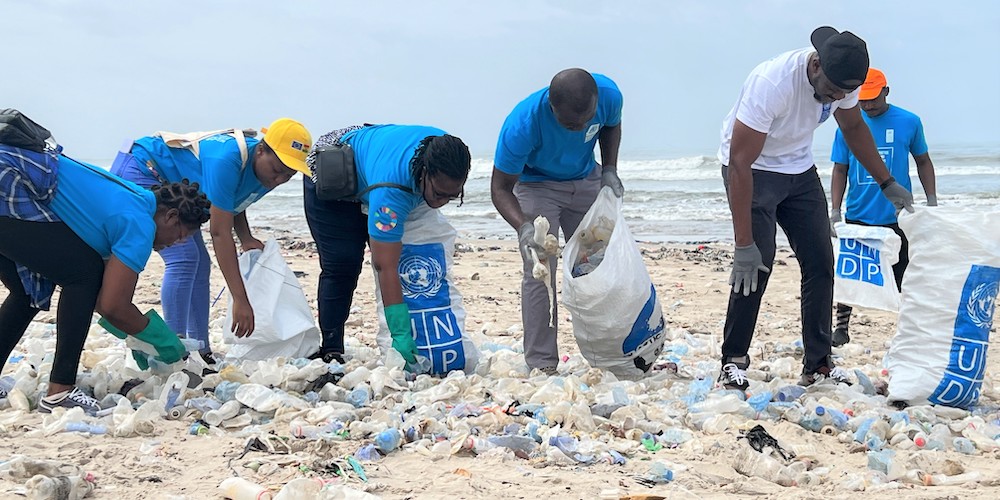Keeping Oceans Healthy

World Environment Day (June 5) is an occasion which brings together millions of people across the country for awareness and action for the environment.
This year, the Ministry of Environment, Forest and Climate Change, Government of India envisages to celebrate the World Environment Day 2023 with a thrust on the Mission LiFE.
The concept of LiFE, i.e., Lifestyle for Environment, was introduced by the Hon’ble Prime Minister Narendra Modi, at the World Leaders’ Summit in Glasgow at the 2021 UNFCCC COP26, when he gave a clarion call to rekindle a global pursuit to adopt sustainable lifestyle and practices.
Mass mobilisation across the country on LiFE are being organized in the run-up to the celebrations.
Zoological Survey of India
Zoological Survey of India, Patna organised a number of events for mass mobilisation of Mission LiFE and reached out to different age groups in various places in Patna. In Kilkari BAL Bhawan reached out to about 50 students. In Patna Womens College, a Water Conservation awareness campaign was organised on 29. 5. 2023 in which more than 55 students of Biotechnology, Botany and Macro Biology took part.
Mission LiFE program was also orgnised in and around suburban areas of Beir in Patna in which more than 50 locals were made aware of water conservation. Pledge was taken by all.
GB Pant National Institute of Himalayan Environment (NIHE)
Garhwal Regional Centre (GRC) of G.B. Pant National Institute of Himalayan Environment (NIHE) conducted a cleanliness drive on the Pauri-Srinagar highway under the ‘Reduce Waste’ theme of mission LiFE. A total of 14 kg of plastic waste has been collected and disposed of in the waste collection point of Nagar Nigam. Further, multi-purpose trees were planted in the Upper Bhaktiyana region to promote Biodiversity and ‘Healthy Lifestyles’. A total of 28 participants, including faculties, staff, and researchers, participated in the program. All the participants took the LiFE Pledge to adopt environmentally friendly habits.
National Centre for Sustainable Coastal Management (NCSCM)
In an ongoing effort to promote the principles of Mission LiFE, Lifestyle for the Environment, NCSCM scientists undertook a sea floor clean-up and awareness drive at Keelakarai, a coastal town located in the Gulf of Mannar (GoM) of the state of Tamil Nadu.
The GoM is situated on the southeast coast of India and has been recognised as a marine biosphere reserve, mainly due to its unique flora and fauna, which amount to 4,223 species of coastal and marine flora and fauna.
The GoM also has one of India’s most important marine national park. Additionally, this coast is well known for migrating whales, dolphins, endangered dugongs, and sea turtles. Coral reefs and seagrasses provide numerous ecosystem services (biodiversity support, supporting livelihoods, coastal protection, carbon sequestration, tourism and recreation, water quality maintenance, cultural and aesthetic value) that are vital for both the environment and human well-being. Protecting and conserving these ecosystems is crucial to ensuring the continued provision of these valuable ecosystem services.
The GoM is known for its high pelagic fishery resources and commercial fishing grounds and supports the livelihood of about 200 fishing villages. However, GoM has faced several environmental challenges in recent years, including threats from marine litter.
On the clean-up drive, fishermen and boat owners have voluntarily joined the NCSCM team in an effort to clear marine litter from these ecologically sensitive ecosystems. About 10 local fishermen took part in the event, and the divers recovered 22 kg of seafloor litter, including pet bottles, abandoned, lost, or otherwise discarded fishing gear (ALDFG), ropes, packing materials, and food wrappers. NCSCM scientists sensitised nearly 30 fishermen on the themes of Mission LiFE and the importance of practising responsible and environmentally friendly fishing practices and energy and water conservation.
These initiatives, including the retrieval and recycling of any abandoned, lost, or otherwise discarded fishing gear (ALDFG) were emphasised since a single ALDFG can remain in the sea for up to 600 years. Plastic contamination, particularly microplastics in the marine environment, as well as their bioaccumulation in the food chain, were highlighted by NCSCM experts.
As part of the event, NCSCM staff highlighted to the fishing community the need for management strategies to control fishing-related litter (FRL), passive clean sea initiatives such as “fishing for litter” to encourage fishermen to bring back the FRL to shore-based reception facilities (RFs) and collecting end-of-life (EOL) fishing gear as a measure for the circular economy and to close the plastic loop in the marine environment. This public awareness campaign aims to improve the health of the oceans through collective action and large-scale community participation (Janbhagidari).
After realising the ecological impact of marine litter, local fishing communities joined the NCSCM team for beach cleaning. This event trained the fisherfolk in a comprehensive manner about their environment, biodiversity, habitat, and the need to live in harmony with nature. The litter management strategies discussed include reduction, beach environment management, and changing litter behaviour through environmental education. Participants in the event took part in the LiFE pledge and signature campaign to safeguard the environment. As part of the event, placards, posters, and LiFE mascots were displayed on the beach to describe Mission LiFE to the local community.



